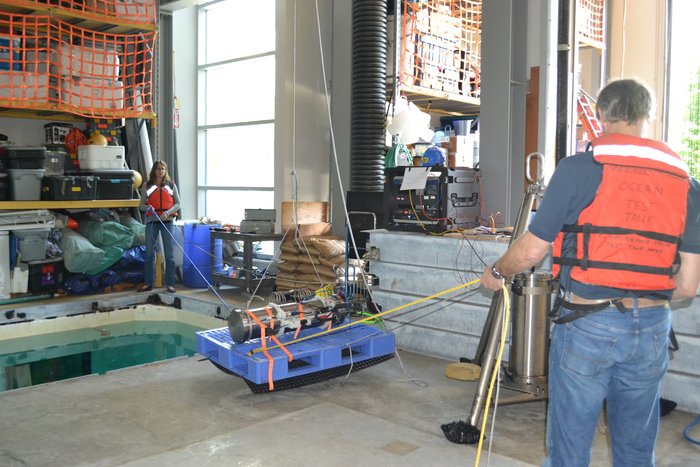Measurements of dissolved gas concentrations such as carbon dioxide, methane, and hydrogen sulfide are critical to understanding volcanic, chemical, and biological processes in submarine environments. Carbon dioxide in magma chambers helps drive seafloor eruptions, and, along with methane and hydrogen sulfide, is key to supporting the subseafloor biosphere. Until recently, however, it has been impossible for scientists to measure these gases in situ for long periods of time. Scientists depended on taking individual samples from vents and seeps, and then analyzing them back in land-based laboratories. In 2014 a novel mass spectrometer, developed by Peter Girguis at Harvard University, will be deployed in a diffuse vent site (MJ03C) on Axial Volcano. A second mass spectrometer will be deployed in 2014 at the summit of Southern Hydrate Ridge. In concert, these instruments will provide the first, real-time long-term measurements of gases in both vent and seep environments, providing critical new information about gas evolution in these dynamic systems.


